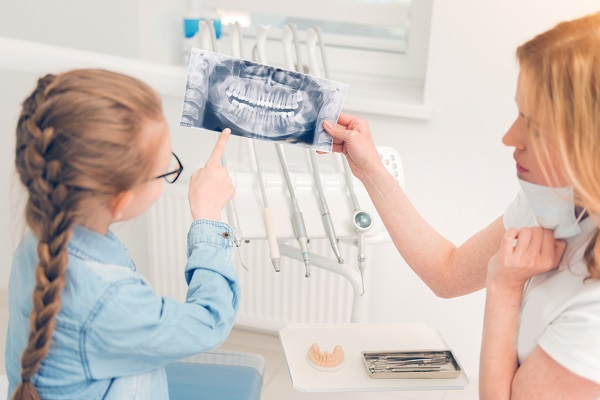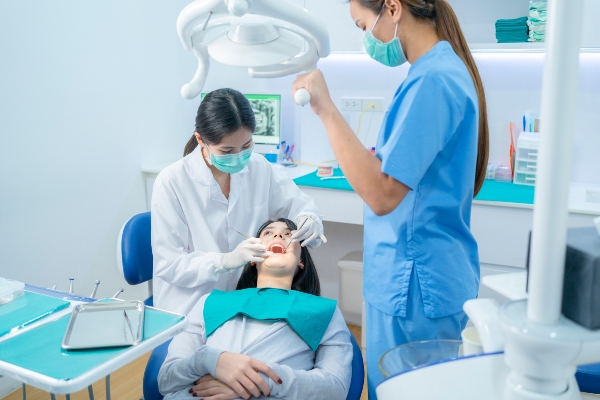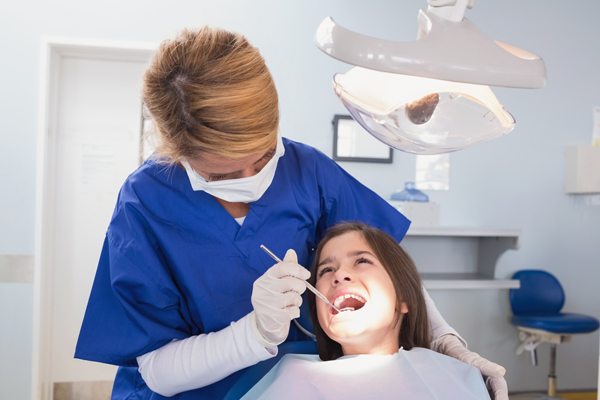5 FAQs About Pediatric Dental X-Rays

Pediatric dental x-rays are an essential tool used by dentists to monitor the development of children's teeth and look for symptoms of decay or other oral conditions. An x-ray can reveal cavities, and because children need regular cavity checks, occasional x-rays are an essential aspect of their dental treatment. Dental x-rays are among the safest types of radiography when appropriately used.
5 Common questions about pediatric dental x-rays
X-rays may be recommended as part of your child's complete treatment when they see the dentist. The following are answers to five of the most frequently asked questions about pediatric dental x-rays.
1. How often should a child's teeth be x-rayed?
Since each child is different, the requirement for dental x-rays differs as well. X-rays are suggested after a child's medical and dental histories have been reviewed and a clinical examination has been performed, and only when they are likely to provide details that cannot be gotten from visual exams alone.
Children, on average, require more x-rays than adults. Their mouths change and expand quickly. They are more prone to tooth decay than adults. The American Academy of Pediatric Dentistry suggests x-ray screenings every six months for children with high vulnerability to tooth decay to detect cavities forming between teeth. Children who have a minimal risk of dental decay generally need fewer x-ray scans.
2. If my child has never had a cavity, why are x-rays still necessary?
X-rays show more than cavities. For example, x-rays may be required to examine emerging teeth, identify bone diseases, evaluate injury impacts, or before orthodontic therapy. Dentists can use x-rays to diagnose and treat diseases that are not visible during an examination. Dental treatment is typically more tolerable and less expensive if dental issues are detected and addressed early.
3. Will my child need x-rays at every appointment?
No. X-rays are only used to examine and monitor a child's dental health when absolutely required. The frequency with which a child receives x-ray films is based on their specific situation. Request copies of x-ray films from the child's former dentist to be delivered to your new pediatric dentist to remove the need for further x-rays and decrease radiation exposure.
4. What are the risks of dental x-rays?
Pediatric dentists take extra precautions to ensure that their patients are not exposed to excessive amounts of radiation. The quantity of radiation received in a dental x-ray examination is quite low because of modern protections. Tooth x-rays, in reality, pose a significantly lower threat than undiagnosed and untreated dental problems.
5. What protections are in place to keep my child safe from x-rays?
Today's technology eliminates superfluous x-rays and confines the x-ray beam to the region of interest. To ensure the safety of the children undergoing treatment, the child will be given a lead apron to wear, which will reduce the effects of stray radiation even further. The child will be exposed to the least amount of radiation possible thanks to high-speed film, digital x-rays, and suitable shielding.
The bottom line
If you have additional questions about pediatric dental x-rays, contact our dental office today to book an appointment.
Request an appointment here: https://www.hvkidsmiles.com or call Hudson Valley Pediatric Dentistry at (845) 363-4177 for an appointment in our Middletown office.
Check out what others are saying about our dental services on Yelp: Pediatric Dentist in Middletown, NY.
Recent Posts
Cavity treatment for kids is essential for a child’s oral health. Dental decay can cause discomfort, causing the child to lose focus at school. It can even result in low self-esteem and malnutrition. Treating cavities can improve your child’s general health. Here are effective techniques for cavity treatment for kids.There are cases when fillings cannot…
Parents play a crucial role in their children's tooth care by ensuring their children get started on the right path to optimal dental health. This involves overseeing children's tooth care at home while also helping them develop healthy dental habits and ensuring they see a pediatric dentist regularly.Parents will need to keep their child's mouth…
Just like adults, children need preventive dental care — that is where pediatric dentistry comes in. Many parents believe that their child's teeth are healthy simply because their child is young. The truth is that oral health issues are as prevalent in kids as much as adults. Since they love sugary treats, the risk of…
Children have a great deal of growing and changing to do before they come into their adult smile, which often means parents fail to consider cosmetic dentistry for children as an option. However, cosmetic dental services can make a big difference for kids at this vulnerable age, when they may be prone to bullying and…


